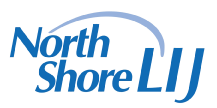- Home
- Media Kit
- Current Issue
- Past Issues
- Ad Specs-Submission
- Ad Print Settings
- Reprints (PDF)
- Photo Specifications (PDF)
- Contact Us

![]()
ONLINE

Nurses Are the Heart and Soul of Health Care
Editors’ Note
Prior to assuming her current posts, Maureen White served as Vice President for Patient Care Services at North Shore University Hospital in Manhasset, NY, and LIJ Medical Center in New Hyde Park, New York. She held a series of prior positions at LIJ, including Vice President for Patient Care Services, Associate Director, Administrator for Patient Care Services - Finance and Systems, and Nursing Care Coordinator of the intensive care and open heart units. In 2000, White was recognized by the American Organization of Nurse Executives, receiving the prestigious Department Wide Innovations Award. She was the recipient of the Distinguished Alumni Award from Molloy College in 2004 and the 2008 Humanitarian Partner of the Year recipient from Queensborough Community College. White holds two undergraduate degrees from Molloy College and an M.B.A. from Fordham University.
In your role, how challenging is it to implement consistent protocol throughout the system and what key areas are you focused on?
We have over 42,000 employees, of which more than 10,000 are registered nurses. Everybody’s voice needs to be heard. I base my leadership style on listening to as many people as we can to get as many opinions as possible. But at the end of the day, we need to make decisions and implement standards in the best interest of the patient.
I’m charged with standardizing best practices across our health system and ensuring that our hospitals and nurses are meeting the quality metrics. Offering educational programs to prepare our nurses to deliver the highest-quality care is always a challenge because health care changes so rapidly.
So my job is about gaining consensus, instituting best practices, and communicating those best practices to all the stakeholders. My biggest challenge is communicating the changes that need to be made, the changes that have been made, and the reasons we believe they are the right changes.
Many are concerned about the shortage of nurses and other health care professionals. Is top talent still excited to enter the industry?
Times of economic stress and uncertainty have actually benefitted the health care industry. After 9/11, many people on Wall Street wanted to contribute more and went back to school to become nurses or EMTs. During times of social change, people think of health care differently.
Nurses generally start thinking about retirement from 50 to 55. But with the economic downturn, many nurses have postponed retirement because they’re not sure what the future holds and if they will be financially stable if they retire. Across the country, we see nursing vacancy and turnover rates declining.
But the shortage is still there and it’s going to get worse in the coming years as the economy improves. By 2020, it’s predicted that there will be more than 500,000 open nursing positions due to retirement and natural progression. The demand for health care is going to increase while the supply of health care workers decreases.
We’ve created an environment in which nurses are valued and respected, and in which nursing leaders emerge. It’s up to the organization to bring out the leadership within all of our employees. We’ve done that by giving people opportunities to build their confidence. We’ve created a learning environment and set the expectations around what people go into health care for – being there for the patient – and we tap into their inner core of motivation.•